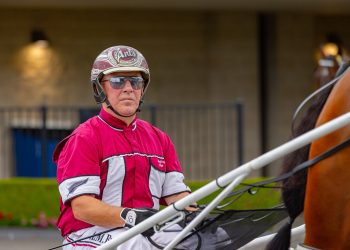While the Taylor Made Farm enterprise is one of the best-known entities in the Thoroughbred world, their ties to harness racing run deep.
In fact, the four Taylor brothers, Ben, Mark, Duncan, and Frank, were immersed in the horse business from day one—via their father Joe Taylor, the longtime farm manager for Gainesway Farm, and through their grandfather, whose primary interest was in the harness horse.
“My grandfather loved Standardbreds and that was his primary focus,” said grandson Ben Taylor. “My dad (Joe) dad grew up working with John and Clarence Gaines of Gainesway Farm and was part of their team when they switched from raising Standardbreds to raising Thoroughbreds.”
Taylor Made began their operation in 1976, as a boarding farm for broodmares in Nicholasville, KY, and grew from there, jumping into yearling sales in 1978, and soon after, establishing a stallion operation.
The rest, as they say is history, and while their father passed away in 2003, the integrity and strong work ethic he instilled in his four sons carries on. Taylor Made Farm and the respective facets of their operation is one of the biggest names in the Thoroughbred industry, known globally for their attention to detail, and honest approach to business.
Recently, all of that hard work paid off when Taylor Made Farm’s Medallion Racing partnership captured an event at Royal Ascot (the premiere Thoroughbred meeting in Berkshire, England) with their freshman filly Porta Fortuna, who captured the Albany Stakes (G3) on June 23. Ridden by top jockey Frankie Dettori, the 2-year-old daughter by Caravaggio, out of the Holy Roman Emperor mare Too Precious, bested 16 rivals to win easily at 5-1.
“That was a huge thrill for all of us,” Ben related. “It’s something you dream about—having a win at Royal Ascot.”
Ben manages the stallion portion of the Taylor Made empire, with Standardbred stallions Lazarus N (Bettor’s Delight), Lather Up (I’m Gorgeous), What The Hill (Muscle Hill), and Pastor Stephen (Cantab Hall) heading up their roster.
“All of our stallions stand at other farms,” Ben explained. “We have a handful of Standardbred broodmares who are located elsewhere too, as we definitely keep the breed businesses separate. Our family—the four brothers—have divided up the various responsibilities and each person overseas their own area of expertise.”
“In the last five to ten years, we’ve been more aggressive in our investments into the Standardbred industry,” Ben explained. “We brought Lazarus over here, and we’re hoping for big things from him. I don’t think a lot of American breeders are that familiar with what he overcame to come here and race as well as he did. He wasn’t 100 percent when he first arrived and still performed well. I would have loved to have given him a break, to acclimatize from the journey, and then raced him. I don’t believe we saw the best of him.”
Lazarus N began his first season stateside in 2019 and thus far has produced 116 starters who have earned $2,854,100, including standouts Voukelfalas p, 3, 1:49.4 ($46,683); Handlelikeaporsche p, 2, 1:50.1 ($184,350); and Lisa Lane p, 3, 1:52.2f ($151,443), among others. He routinely ships back and forth as a Down Under, double-hemisphere stallion.

What The Hill, who was the 2017 Dan Patch Award winner as 3-year-old Trotter of the Year, stands at Hickory Lane Farm in Findlay, Ohio. The $1.2-million winning son out of the Angus Hall mare KT Cha Cha has sired 207 starters from 2018-2022, who have earned $5,855,479.
Lather Up, famously campaigned by the Teague family to $1,735,623 and a mark of p, 4, 1:46, can be found at Sugar Valley Farm in Delaware, Ohio. To date he’s sired 43 starters via his first crop of 2-year-olds, including Hundred Dollar Man p, 2, 1:53.3f and High N Dry p, 2, 1:54.3f, among others. He also is a double-hemisphere producing stud.

Paster Stephen, 3, 1:52.4s ($1,050,992) who began standing in Indiana in 2021, was recently exported to Australia.
“We’ve never forgotten our roots,” Ben admitted. “We’ve always had a few Standardbreds, and as kids, we are at the Red Mile all the time. My father incorporated a lot of what he saw as good in the Standardbred business into his Thoroughbred operation, and especially when he started the Breeders Cup—he thought that all of the nomination process was way too complicated and wanted just a single nomination to make a horse eligible. So, with the Breeders Cup, it’s the stallion that’s nominated (similar to the Breeders’ Crown nomination). He always believed that many of the positive, different things from one industry could transfer over to the other industry, to improve it.”
by Kimberly Rinker, for Harnesslink

 USA
USA Canada
Canada Australia
Australia New Zealand
New Zealand Europe
Europe UK / IRE
UK / IRE



